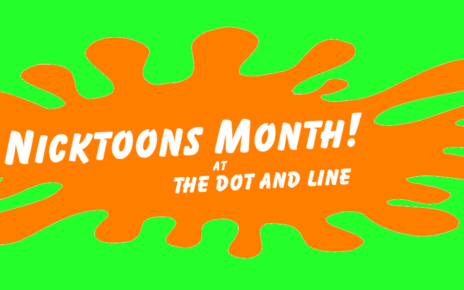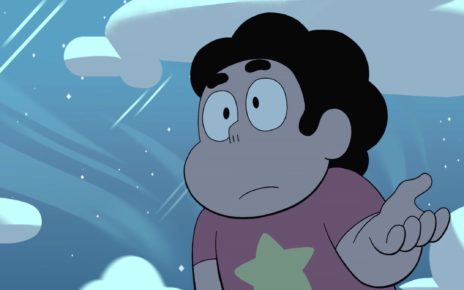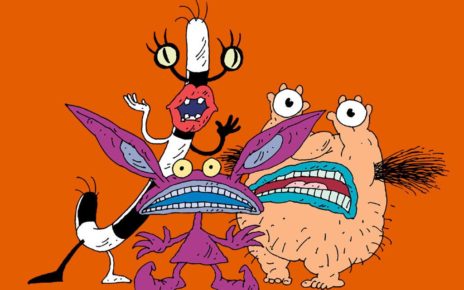When you decide you want to do something, it’s natural to seek out fictional characters who do that thing. I loved “reading” before I could read (I’d page through books and make up stories). I started “writing” before I could write (I’d illustrate stories and dictate the captions to my mother; a writer herself, she indulged). Naturally, I hoped to see my weirdness reflected in other people’s stories.
Like many millennial women, the first pop-cultural bookworm I remember loving was Belle from Disney’s Beauty and the Beast. I used to fall asleep hoping I’d wake up in Belle’s two-dimensional skin. (In my daydreams, my mom would understand when I came down for breakfast having transformed from a five-year-old blonde into a teenage brunette.) But time has shown me we only see Belle as a literary consumer or an appreciator—she’s not, as far as we know, a creator. Most of the fictional writers I remember from childhood were diarists like Charlotte Doyle, Harriet the Spy, or Queen Silver-Bell.
But they weren’t doing what I wanted to do: make shit up.
The first fictional fiction writer I loved was Daria Morgendorffer from MTV’s iconic ’90s cartoon. Like Belle, Daria reads constantly. Unlike Belle, Daria hates everyone. Not a bad analogue for my child-versus-teen worldviews.
But since my childhood, more and more nerds have graced the screen. Pixelated scribes have blessed us with their wisdom across form and genre, from academia to political activism to erotica. Here are my favorites, ranked.
10. Henchman 21 / Gary Fisher, The Venture Bros. (nonfiction)
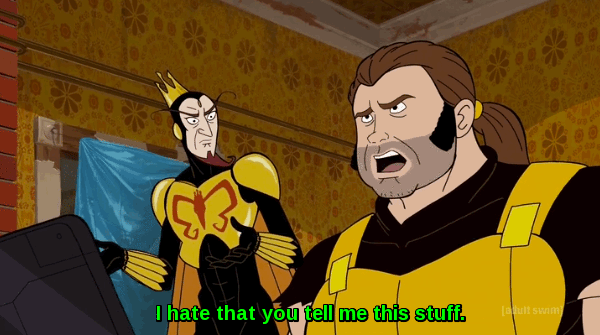
Henchman 21 a.k.a. Gary Fisher (voiced by Doc Hammer) is a slow burn in The Venture Brothers’ character development arcs, but he’s worth the wait. In “The Trial of the Monarch,” we get an early glimpse into 21’s skillset: he’s written an anonymous, tell-all biography about his villainous boss, titled The Flight of the Monarch.
What we can learn from Henchman 21: The Monarch claims the book is filled with “lies and pictures of also-lies,” which sounds suspiciously like an accusation of “fake news.” I would guess Henchman 21 has his sources straight.
9. Eiri Yuki, Gravitation (romantic fiction)
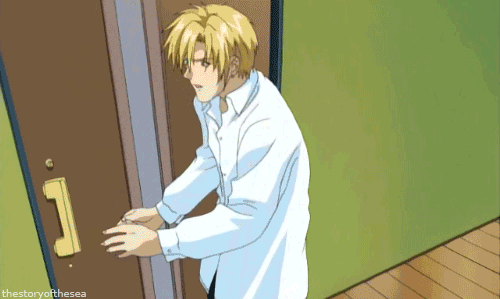
“You call this a love song? It’s the worst thing I’ve ever read. You’ve got zero talent…your writing sucks.” In Gravitation, this is how songwriter Shuichi Shindou and romance novelist Eiri Yuki “meet cute,” sort of.
What we can learn from Yuki: Yuki’s literary negging is highly effective, and Shindou falls madly in love with him. That said: don’t neg, folks.
8. Brendon Small, Home Movies (drama)
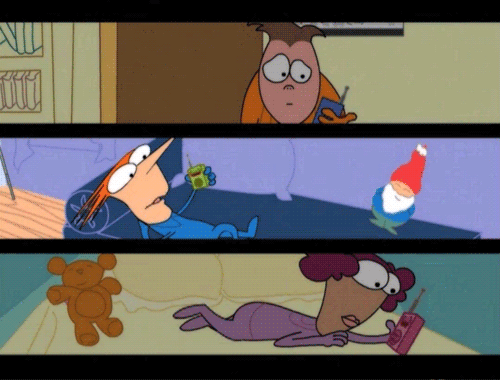
Brendon Small is an eight-year-old filmmaker who writes, directs, and stars in most of his own movies, with help from his co-starring friends Melissa and Jason. Brendon’s scripts reflect his angst and anxieties, making his films ideal side-plots for 22-minute episodes.
What we can learn from Brendon: Write what you know, even if it’s from the perspective of a slightly egotistical elementary school student.
7. Shigure Sohma, Fruits Basket (academic nonfiction / romantic fiction)
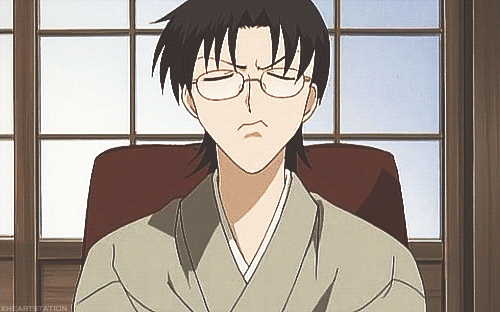
A successful adult male author sexually obsessed with high school girls? Imagine!
What we can learn from Shigure: Nothing we didn’t already know about this messed-up world.
6. Lisa Simpson, The Simpsons (fiction)
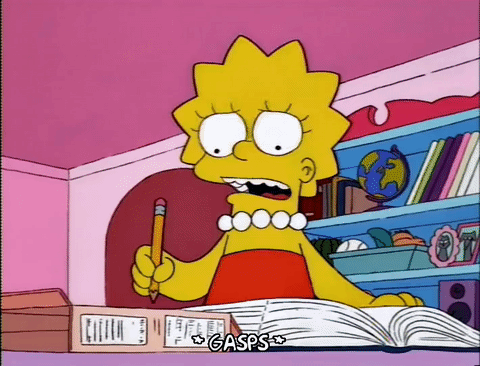
Lisa Simpson may be television’s longest-running cartoon nerd.
What we can learn from Lisa: In “The Book Job,” she fully embraces the writing lifestyle: “Chapter one. Wait. I can’t start without music to inspire me. Why is Bach next to Muddy Waters? That’s my problem — I got to get these CDs organized. There. Finished. Now, if I win just two more games of online Boggle, I’ll be ready to start writing.” The struggle is real.
5. Tina Belcher, Bob’s Burgers (erotic friend fiction)

Tina Belcher (voiced by Dan Mintz) is a master of “erotic friend fiction,” a genre she invented about “people at school and zombies.” Her classic story, “Buttloose,” pays homage to Footloose by imagining a world in which touching butts has been forbidden. (Which is kind of our current world, but hey.)
What we can learn from Tina: Before school, Tina wakes up an hour early to get her words in. If only we could all be so diligent.
4. Huey Freeman, The Boondocks (drama / nonfiction)
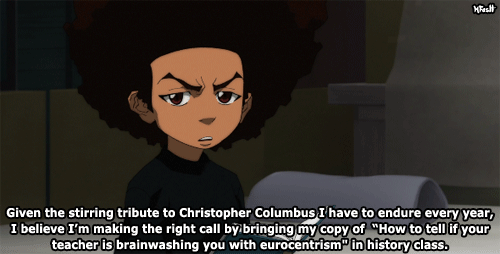
Huey Freeman (voiced by Regina King) is a 12-year-old intellectual. He writes letters and petitions to public and political figures, creates a newspaper titled The Free Huey World Report, and, in “A Huey Freeman Christmas,” pens the script for The Adventures of Black Jesus. Quincy Jones agrees to produce the play, because even he recognizes Huey’s talent.
What we can learn from Huey: Read constantly!
3. Diane Nguyen, BoJack Horseman (nonfiction)
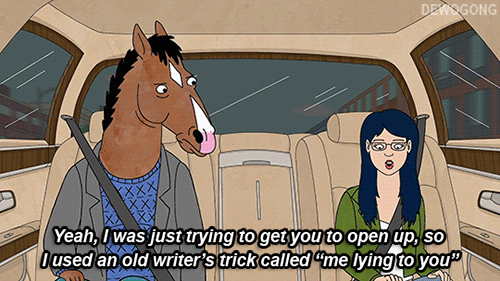
In Season 1 of BoJack Horseman, Diane Nguyen (author of Secretariat: A Life, reflecting her major in Literature and Equine Studies) is hired to ghostwrite BoJack’s autobiography. By Season 5, she’s a staff writer for the website GirlCroosh, for whom she writes a devastating personal essay about identity and loss masquerading as a listicle (“10 Reasons to go to Vietnam: A GirlCroosh Personal Travel Guide”).
What we can learn from Diane: GirlCroosh does not deserve Diane. And many media companies do not deserve us.
2. Daria Morgendorffer, Daria (fiction)
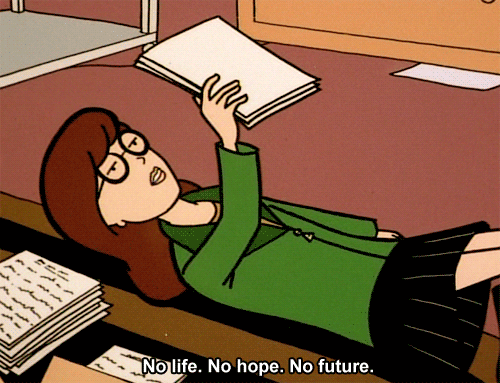
In the end-of-seriesmovie Is It College Yet?, Daria bails on plans with her boyfriend because she doesn’t want to “leave [her] protagonist all alone just after her eyeballs have burst” (this scene is cut from the DVD edit, because…people are monsters?).
What we can learn from Daria: I mean, come on. Not all heroines wear capes.
1. Lumpy Space Princess, Adventure Time (memoir / self-help)
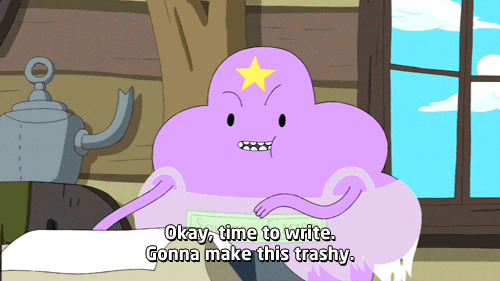
LSP (Pendleton Ward) has “always wanted to write trashy books for ladies,” and I have always wanted to read them. In the episode “Gotcha!”, LSP decides to help her friend Turtle Princess by writing an explanatory tell-all about how to seduce men by working one’s lumps. After an elaborate secretarial ruse, LSP realizes that some people are hot because their lumps are on the inside, and rethinks her story. Turtle Princess loves it, titling the manuscript “I WROTE A BOOK.” And isn’t having “I WROTE A BOOK” on the cover of a bound manuscript every writer’s dream?
What we can learn from LSP: It’s OK to find the story along the way. Work those lumps.
Thanks for reading The Dot and Line, where we talk about animation of all kinds. Don’t forget to follow us on Twitter and sign up for our newsletter.



